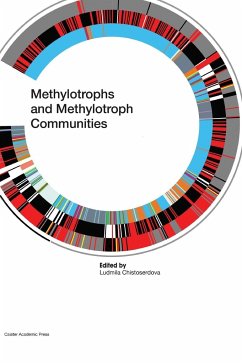
Thermophilic Microorganisms
Versandkostenfrei!
Versandfertig in über 4 Wochen
220,99 €
inkl. MwSt.

PAYBACK Punkte
110 °P sammeln!
Thermophilic microorganisms thrive in a variety of marine and terrestrial habitats. These organisms have evolved several biochemical and molecular strategies to counteract the deleterious effects of the high temperatures in their environments. Given that temperature is considered to be one of the most important physical factors controlling the adaptation and evolution of organisms, the remarkable ability of thermophilic microorganisms to thrive at high temperatures makes them an ideal model to study this phenomenon. Over the decades, these organisms and their enzyme systems have found applicat...
Thermophilic microorganisms thrive in a variety of marine and terrestrial habitats. These organisms have evolved several biochemical and molecular strategies to counteract the deleterious effects of the high temperatures in their environments. Given that temperature is considered to be one of the most important physical factors controlling the adaptation and evolution of organisms, the remarkable ability of thermophilic microorganisms to thrive at high temperatures makes them an ideal model to study this phenomenon. Over the decades, these organisms and their enzyme systems have found applications in a variety of industrial and biotechnological applications, for example the heat-stable DNA polymerases used in PCR. In this book, leading scientists highlight the current progress in the most topical areas of research, providing a timely overview of the field. The book reviews the ecology, enzymology, and genetics of thermophiles, and it includes topics on the diversity and ecological roles of thermophiles, the biochemical properties of thermostable biocatalysts and their applications, polyamines and the impact of viruses on thermophiles, DNA replication and metabolic engineering of thermophiles, and much more. An important feature of the book is the extensive focus on the industrial application of thermostable catalysts, including alcohol dehydrogenase, glycoside hydrolase, protease, and lipases. In addition, contributors discuss current technical challenges and future development trends. *** Librarians: ebook available on ProQuest and EBSCO [Subject: Microbiology, Life Science














